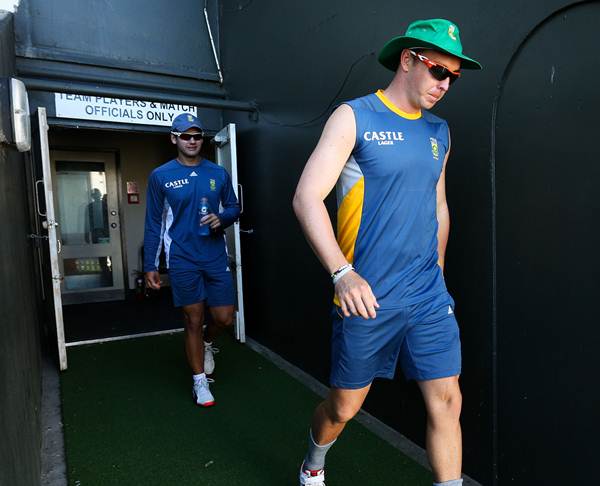All that you need to know about the Kolpak rule
2 Min Read


One of South Africa’s most promising talents, Kyle Abbott, chose to sign a four-year deal with Hampshire as a Kolpak player. This means that the pacer will now not be eligible to turn up for his national side until the deal gets over. When the news of Abbott signing the Kolpak deal broke out, many were shocked and amused. The primary reason being that Abbott has been having a magnificent run in the national side in Test cricket in the recent times.
Earlier last year, Zimbabwe’s star batsman Brendan Taylor had quit international cricket owing to the same rule and had got a lot of attention. While the rule is known to many, there are a few who still are unsure about how the Kolpak rule works. Here is all that you need to know about the Kolpak rule:
Roots and definition
The rule states that the citizens of the countries which are a part of the European Union Association Agreements are allowed to work in the EU country with the same right as that of a local citizen. Relating this to cricket, the players from the countries with such deal with the EU are permitted to play in EU nations without being considered as an overseas player in their side. This equates to the fact that they can take the field for the county teams without being named as the overseas additions.
One could relate this to a hypothetical situation wherein Lasith Malinga plays for Mumbai Indians in the IPL as a local player. It would be analogous to this situation. The rule is named after Slovak handball player Maros Kolpak. He wanted to play for Germany as a local player since he had work permit of that country. But was not able to play since there were already two non-EU players in the side. He appealed to the court and got the verdict in his favor.
Also check out- Top 25 Cricketing tweets of the year 2016
South Africans and nationality limits
The South African players are permitted to be signed on a Kolpak deal since South Africa has a Cotonou Agreement with the EU. Other countries like Zimbabwe and some Caribbean nations are also a part of it. However, it is worth noting that not all South Africans can sign Kolpak deals. Only players with work permit of four years in the UK or with specified number of international matches to their experience can sign it.
Country and native restriction
A player under Kolpak rule cannot play for his country until the deal is over. However, the player can play domestic cricket in his native country but only in the English off-season. The English cricket becomes the priority. If a Kolpak player plays for seven years for a county team, he can be eligible to play for England. South African cricketer Jacques Rudolph signed the Kolpak deal in 2007. He was dropped from the national side a year before that. He played for Yorkshire till 2010. When the deal got over, he played for South Africa again.
Positives – Why players choose Kolpak over International cricket?
There are different reasons why players choose to leave national duties and sign Kolpak rule. For instance, the Cricket South Africa (CSA) introduced quota system which allowed certain fixed number of colored players in the team. This meant that a white player such as Kyle Abbott often lost out on his place because a colored player had to be accommodated in the side. Other players, like Brendan Taylor of Zimbabwe, chose to sign the deal as English players are paid better.
Also read- Stats: Top 10 partnerships in first-class cricket
The domestic cricket players in most countries are paid less. Hence, money becomes a reason too. For the countries, Kolpak deal is a beneficiary as they get the services of top-class international players and can field them as local players. Most leagues, like Natwest T20, allows only 2 overseas players. With a Kolpak player in the squad, they can field him along with the overseas players.
Negatives
With the overseas players coming in the line up as local players, the local talent of the country often gets unnoticed. They often have to pave way for the Kolpak players in the team as these players come in with handy international cricket experience.
Download Our App